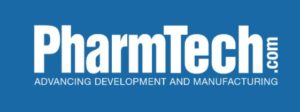Q. I have been hearing that regulatory authorities are beginning to audit companies regarding their ‘quality’ culture’s relationship to data integrity tools. Can you give me a little background on this issue?
 A. The regulatory authorities have always been interested in data integrity tools. Recently, however, the specific culture of an organization is being connected to the veracity and accuracy of the data generated to support the quality of manufactured products. The theory is the more mature an organization is the more reliable the product support data are. To understand this concept thoroughly, we should start with a brief review of FDA’s quality metrics initiative.
A. The regulatory authorities have always been interested in data integrity tools. Recently, however, the specific culture of an organization is being connected to the veracity and accuracy of the data generated to support the quality of manufactured products. The theory is the more mature an organization is the more reliable the product support data are. To understand this concept thoroughly, we should start with a brief review of FDA’s quality metrics initiative.
Data Integrity Guidance
When FDA posted the first draft guidance, Request for Quality Metrics, the metrics chosen were lot acceptance rate, product quality complaint rate, invalidated out-of-specification (OOS) rate, and annual product review or product quality review on time rate. The guidance also contained three optional metrics intended to measure quality culture: measuring senior management engagement, corrective actions and preventive actions (CAPA) effectiveness, and process capability/performance.
Although the optional data integrity tools intended to measure quality culture were removed from the current version of the guideline, it is the first indication that regulators felt there was a correlation between culture and data integrity. At the same time the issue of quality metrics was being discussed, there was a resurgence of data integrity problems in the industry evidenced by the number of citations that reference this issue.
Data Integrity Issue
Between 2005 and 2016, approximately 225 FDA warning letters were issued with observations for data integrity. These observations included repeat human error deviations, insufficient training, system failures, inappropriate qualification or configuration of systems, poor procedures or not following procedures, and intentional acts of falsification.
The increase in data integrity observations prompted regulatory authorities to address the issue by releasing a series of guidelines that reemphasize the importance of data integrity. FDA, the Medicines and Healthcare products Regulatory Agency (MHRA) in the United Kingdom, the World Health Organization (WHO), and the Pharmaceutical Inspection Co-operation Scheme (PIC/S) have all released documents to reeducate the industry on data integrity concepts and expectations. In addition to the regulatory guidelines, the Parenteral Drug Association (PDA) released a free document titled Elements of a Code of Conduct for Data Integrity to help address the problem.
Quality Culture
One common theme permeating through these documents is that of quality culture. Regulators have linked the reliability of data to the existence of a quality culture as exemplified by statements taken directly from the guidance.
The PIC/S guidance on Good Practices for Data Management and Integrity in Regulated GMP/GDP Environments (5) states, ‘Management should aim to create a work environment (i.e., quality culture) that is transparent and open, one in which personnel are encouraged to freely communicate failures and mistakes. Organizational reporting structure should permit the information flow between personnel at all levels’.
MHRA Guidance
The MHRA guidance (2) titled ‘GXP’ Data Integrity Guidance and Definitions discusses organizational culture, stating:
‘The organization needs to take responsibility for the systems used and the data they generate. The organizational culture should ensure data [are] complete, consistent, and accurate in all its forms (i.e., paper and electronic)’ … ‘The impact of organizational culture, the behavior driven by performance indicators, objectives, and senior management behavior on the success of data governance measures should not be underestimated. The data governance policy (or equivalent) should be endorsed at the highest levels of the organization.’
WHO Guidance
WHO deals with the concept of quality culture in their document Guidance on Good Data and Record Management Practices by stating,
Adoption of a quality culture within the company that encourages personnel to be transparent about failures so that management has an accurate understanding of risks and can then provide the necessary resources to achieve expectations and meet data quality standards.
This same document states:
Management, with the support of the quality unit, should establish and maintain a working environment that minimizes the risk of non-compliant records and erroneous records and data. An essential element of the quality culture is the transparent and open reporting of deviations, errors, omissions and aberrant results at all levels of the organization, irrespective of hierarchy.
Regulatory Leadership
Based on the language used in data integrity guidance documents, it is clear that regulatory authorities consider quality culture an important element in establishing the veracity and integrity of the data being generated by companies that support the products they manufacture.
The trouble with quality culture is determining how to measure it. PDA has developed a culture assessment tool that links organizational attributes to specific behaviors.
PDA Guidance
Attributes were defined as elements of a quality system such as, but not limited to, deviations reporting, change control, CAPA, complaints, and environmental monitoring programs or systems. Behaviors were defined as intangibles such as, but not limited to, robust communication and transparency, rewards and recognition, employee engagement, and cross functional vision.
The theory was if quality attributes equaled quality behaviors, which then equaled quality culture, then if the quality attributes of a company could be measured, they would reflect the maturity of the quality culture of an organization. The PDA tool involves several steps that include training employees on the use of the tool, an onsite assessment, an all-staff survey, and finally analysis and action on the results.
ALCOA Data Integrity
There are, of course, other tools available to measure the culture of an organization. The real point is whatever tool your company uses to measure culture, it will be an important element in determining your data integrity risks and remediating them before an inspection.
Auditing a company to determine if their culture is conducive to generating data that meets the attributable, legible, contemporaneous, original, and accurate (ALCOA) concepts is on the horizon and may become a part of routine audits performed by regulators or industry auditors when evaluating the suitability of a manufacturer, potential partner, or service provider.

Article Details
Pharmaceutical Technology
Vol. 42, No. 10
Pages: 82, 81
About RCA’s Pharmaceutical Consulting Services
Regulatory Compliance Associates (RCA) has helped thousands of pharmaceutical companies meet regulatory, compliance, quality assurance, and remediation challenges. With more than 20 years of experience with FDA, Health Canada, EU and global regulatory agencies worldwide, Regulatory Compliance Associates® offers leading pharmaceutical consultants. We’re one of the few pharma consulting companies that can help you navigate the challenges associated with industry regulations.
Our pharmaceutical consulting firm includes over 500 seasoned FDA, Health Canada & EU compliance consultants and regulatory affairs experts who understand industry complexities. It’s a pharma consultancy founded by regulatory compliance executives from the pharmaceutical industry. Every pharmaceutical industry consultant on the Regulatory Compliance Associates team knows the unique inner workings of the regulatory process.
Client Solutions
Whether you’re in the product planning, development or pharmaceutical lifecycle management stage or need a remediation strategy for a compliance crisis, Regulatory Compliance Associates will guide you through every pharmaceutical consulting step of the regulatory process and create a customized approach depending on your product and your pharma company’s individual needs. Our regulatory compliance clients include:
- Companies new to FDA, Health Canada or EU regulations and regulatory compliance
- Start-up organizations with novel submissions to 510(k) submissions from multi-national corporations
- Investment firms seeking private equity due diligence for pre-acquisition and post-deal research
- Law firms seeking pharmaceutical consulting firm expertise in the remediation of warning letters, consent decrees, 483’s or import bans
Regulatory Affairs
Regulatory affairs is Regulatory Compliance Associates backbone. We exceed other pharma consulting companies with industry experts experienced in complexities of the pharmaceutical and biopharmaceutical industries. Our pharma consulting expertise spans all facets and levels of Regulatory Affairs, from Regulatory Support for New Products to Life Cycle Management, to other services like Outsourced Regulatory Affairs, Submissions, Training, and more.
As your partner, we can negotiate the potential assessment minefield of regulatory compliance services with insight, hindsight, and the clear advantage of our breadth and depth of knowledge and regulatory compliance consulting. We offer the following pharma consulting regulatory affairs services for pharmaceutical companies.
- New Product Support
- Product Lifecycle
- Other Regulatory Services
- Combination Products
Compliance Assurance
The regulations process surrounding pharmaceutical companies can be tricky for even the most experienced industry veteran to understand. Just one misstep could mean significant and lasting consequences for your business. At Regulatory Compliance Associates, we offer the pharma consulting experience and pharma consultants necessary to guide you through the quality compliance process.
- Assessments
- Audits
- Regulatory Agency Response
- Preparation and Training
- Inspection Readiness
- Data Integrity
Quality Assurance
Regulatory Compliance Associates Quality consulting includes assessments, strategy, implementations, staff augmentations, and identification of quality metrics to ensure continuous improvement. Our pharma consultants understand the strategic thinking needed to align your business needs and goals. Regulatory Compliance Associates quality assurance services include quality experts with experience spanning major corporations and start-ups. Our pharmaceutical consulting firm knows firsthand how to achieve, maintain, and improve quality, and we excel in transferring pharma consulting knowledge to your organization.
- 21 CFR Part 11
- Data Integrity
- Manufacturing Support
- Facility Support
- Quality Metrics
Remediation Services
Regulatory Compliance Associates has a proven remediation services approach to managing FDA Warning Letters, Consent Decrees, Remediation and other serious regulatory situations. Our pharma consultants know how to partner with executive, legal, and communication teams. Each RCA pharma consulting Expert will develop a response that will be accepted by the regulatory agency and be realistic to execute.
Regulatory Compliance Associates pharma regulatory consultants will develop a comprehensive proof book of documented evidence demonstrating the corrective action taken to remediate non-compliant issues. In addition, each Regulatory Compliance Associates pharma consulting Expert understands compliance enforcement. We’ll prepare a comprehensive pharma consulting strategy to assist in your remediation efforts, drive continuous improvement, and maintain regulatory compliance with the regulations.
- Regulatory Action
- Regulatory Compliance
- Regulatory Enforcement
- Warning Letter
- 483 Observation
- Oversight Services
- Risk Management Plan
About Regulatory Compliance Associates
 Regulatory Compliance Associates® (RCA) provides pharmaceutical consulting to the following industries for resolution of life science challenges:
Regulatory Compliance Associates® (RCA) provides pharmaceutical consulting to the following industries for resolution of life science challenges:
- Life Sciences
- Pharmaceutical
- Biologic & Biotechnology
- Sterile compounding
- Medical device
- Lab Testing
We understand the complexities of running a life science business and possess areas of expertise that include every facet of R&D, operations, regulatory affairs, quality, and manufacturing. We are used to working on the front lines and thriving in the scrutiny of FDA, Health Canada, MHRA and globally-regulated companies.
As your partners, we can negotiate the potential minefield of regulatory compliance and regulatory due diligence with insight, hindsight, and the clear advantage of our unique expertise and experience.
- Founded in 2000
- Headquartered in Wisconsin (USA)
- Expertise backed by over 500 industry subject matter experts
- Acquired by Sotera Health in 2021
About Sotera Health
The name Sotera Health was inspired by Soteria, the Greek goddess of safety, and reflects the Company’s unwavering commitment to its mission, Safeguarding Global Health®.
Sotera Health Company, along with its three best-in-class businesses – Sterigenics®, Nordion® and Nelson Labs®, is a leading global provider of mission-critical end-to-end sterilization solutions and lab testing and advisory services for the healthcare industry. With a combined tenure across our businesses of nearly 200 years and our industry-recognized scientific and technological expertise, we help to ensure the safety of over 190 million patients and healthcare practitioners around the world every year.
We are a trusted partner to 5,800+ customers in over 50 countries, including 40 of the top 50 medical device companies and 9 of the top 10 pharmaceutical companies.
Commitment to Quality
Our Certificate of Registration demonstrates that our Quality Management System meets the requirements of ISO 9001:2015, an internationally recognized standard of quality.
To begin the Regulatory Compliance Associates scoping process today, please enter your information in the blue form below and click the submit button at the bottom of the webpage.


